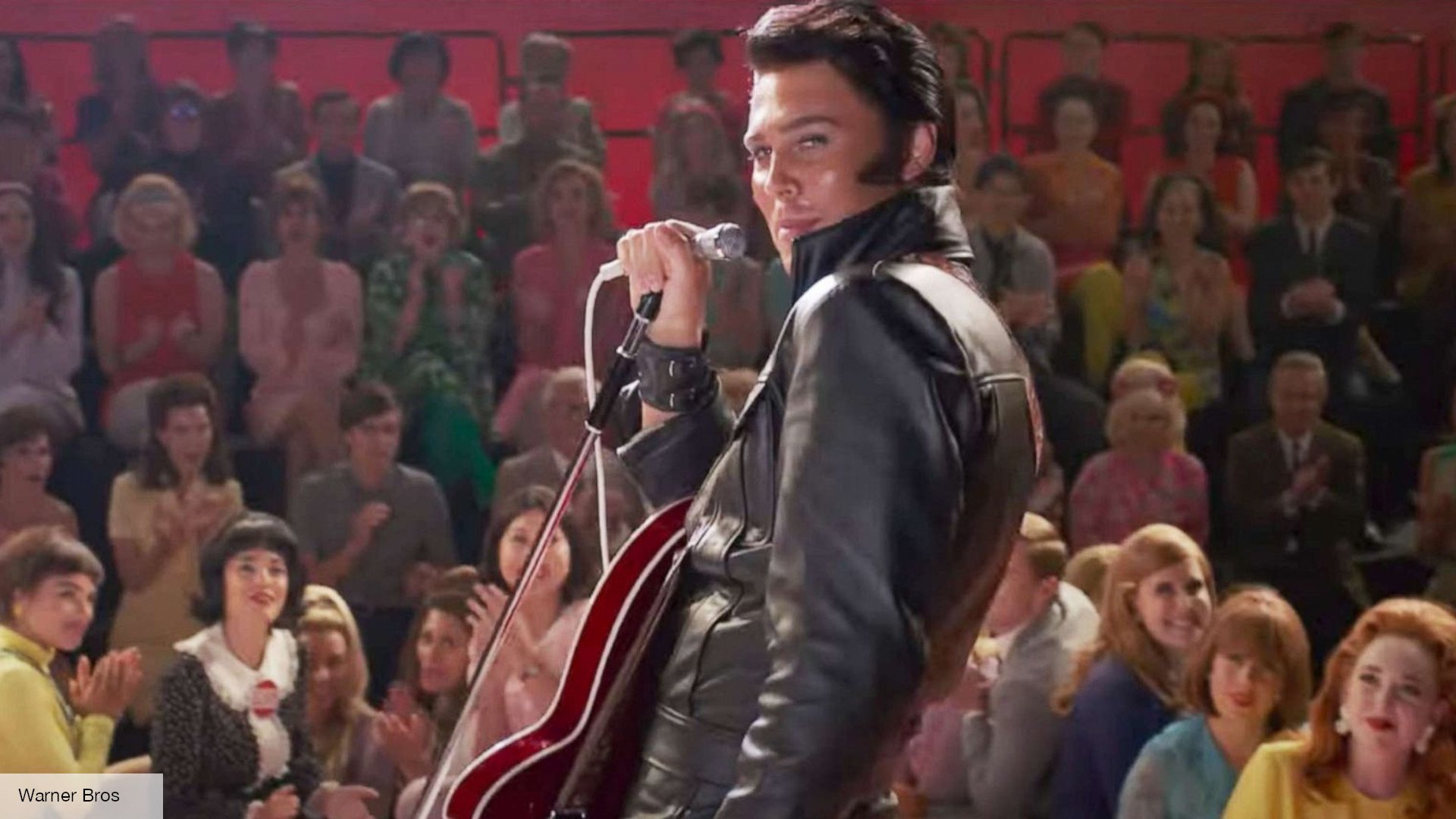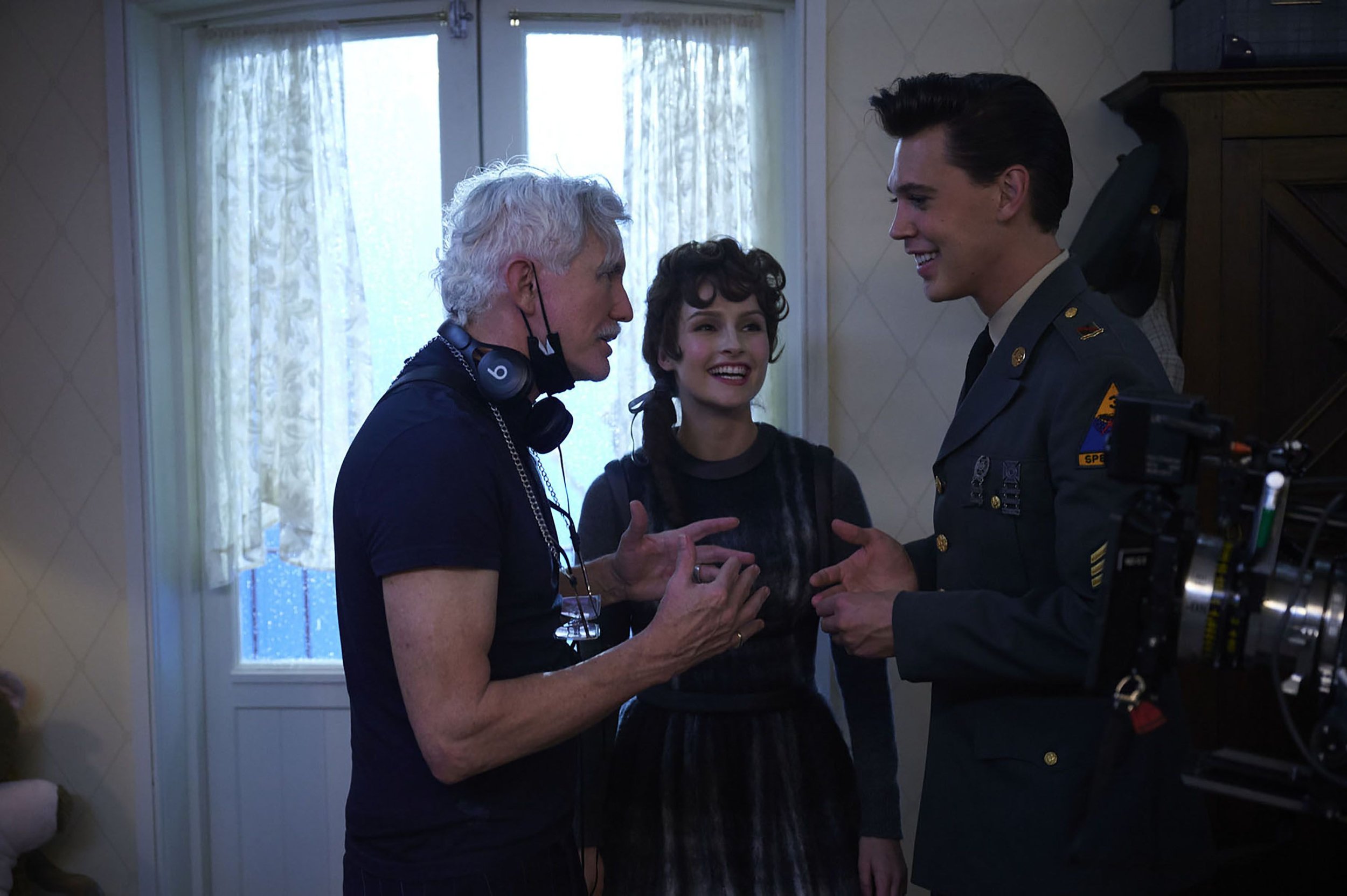“Elvis” Review
Austin Butler shines as Elvis Presley in Baz Luhrmann’s “Elvis,” a biopic about the life of the King of Rock-and-Roll.
I’ve never been a big fan of Baz Luhrmann’s films. While I enjoy “Moulin Rouge” and “Australia” enough, I never really understood all of the love for his versions of “Romeo + Juliet” and “The Great Gatsby.” However, I’ve always dug his style of splashy colors, incredible cinematography and lavish production.
All of this time, I’ve been waiting for the film that takes his style and really clicks with me. “Elvis” is that film. By disregarding the traditional biopic formula and doing its own thing, Luhrmann’s take on Elvis Presley is easily one of the year’s best films.
Telling the story of the life of Elvis (Austin Butler), the film follows his many highs and lows through the point-of-view of Presley’s seedy manager Colonel Tom Parker (Tom Hanks). Despite achieving great success, the King of Rock-and-Roll struggles with his musical direction, addiction and personal conflicts with Parker in this shockingly human portrayal of the legend.
Since it’s told from Parker’s point of view, the film focuses mainly on the career of Elvis and how the lifestyle embraced, then started to kill, the rock-and-roll star. While telling the story of just an artist’s career would be detrimental to most biopics, it’s different with Elvis. Not enough people understand just how big of a splash Elvis made or how talented he was. Nowadays, people make Elvis out to be more of an icon as opposed to an artist, much like Marilyn Monroe and James Dean. He’s someone to impersonate instead of someone to truly be wowed by.
That novice opinion of Elvis quickly leaves after seeing Austin Butler give a one-of-a-kind performance. I never thought that this was an impression or that Butler was just dressed up like Elvis. By the time you reach the half-hour mark, Austin Butler doesn’t even exist. There is only Elvis.
What makes Butler’s performance so powerful is that both strengthens and peels back the mythical figure we all know. In many ways, Elvis was the man we all thought he was. He was a hell of a performer, he did love being a star. But underneath there was this sensitive artist who wanted to be taken seriously. He wanted to make songs that had powerful messages. He wanted to be a serious actor. But most of all, he wanted to be himself and the biggest obstacle to that wasn’t the hicks who were horrified at his dancing and how arousing it was, it was Colonel Tom Parker.
Tom Hanks’ despicable portrayal of Colonel Tom Parker has completely shattered any ideas that Tom Hanks always plays the good guy. He can be a great villain which is all for the best.
Despite being the main narrator, Colonel Tom Parker does little to earn any sympathy from the audience. Tom Hanks may be a nice guy in real life but, as the Colonel, he is a complete bastard who manipulates Elvis for his own gain. He literally states that he knows nothing of music, he just wants money. In fact, Parker is so slimy that he tries to blame Elvis’ premature death on his love for his audience instead of Parker’s treatment which drove Elvis to prescription drug addiction.
Their relationship is fascinating because of how real it feels in a world that is built on glitz and frivolities. This kind of manipulative relationship is not uncommon, especially in entertainment, which makes Colonel Tom Parker even more scary. Not only was he real, not only are there more just like him, but he has this undeniable charisma that makes you understand why Elivs would do business with him.
The film does an incredible job of telling you things from his life story that many people wouldn’t know. I found it especially interesting how he didn’t just want to sing two-minute Top 40 Hits. He cared about the state of the world just like The Beatles and Bob Dylan which came to a head during the production of his 1968 Comeback Special.
I also was fascinated by how much people hated the way he danced and wanted to put him in jail for dancing that would become the norm over the next decade thanks to artists like James Brown and Mick Jagger. Whenever I see people today having one of their idiotic moral panics, all I see are people wanting to ban “Elvis the Pelvis” or burn Beatles records because John Lennon said they were bigger than Jesus (and let’s face it, they were).
But these people aren’t cartoons. They were trying to destroy Elvis because he was bringing black music and black dance into the mainstream, something that is still relevant because black artists still undeservedly suffer harsh criticism for their work. Speaking of which, the music for “Elvis” is stunning with so many great songs (including my favorites “Suspicious Minds,” “If I Can Dream” and “An American Trilogy”) being played, but it’s not just to show how amazing Elvis was. The music helps us understand him.
The film continuously shows where Elvis got his inspiration, black artists, and how he paid homage to their work. This included being friends with B.B. King, Mahalia Jackson and Fats Domino and covering iconic blues songs like “That’s All Right” and “Hound Dog.” One sequence visually shows how Elvis got his style by combining the dancing and fashion of Beale Street in Memphis with the blues, gospel, R&B, country and bluegrass to create a new sound.
Baz Luhrmann’s (Left) direction of “Elvis” is mesmerizing by combing his signature style with a truly iconic figure of American popular culture.
There is also some music by modern musicians fused into the soundtrack which really worked to the film’s advantage. These new songs are heavily inspired by Elvis’ sound while also giving the film more of a unique identity outside of a conventional biopic. Doja Cat’s “Vegas,” Eminem and CeeLo Green’s “The King and I” and Kacey Musgraves’ cover of “Can’t Help Falling In Love” are particularly good and further add to the story because these artists, like Elvis, have gotten their share of controversy. I remember when Eminem used to be “the enemy” because he dared to use words like “motherfucker” in his tracks. Now, he’s soon to be a member of the Rock-and-Roll Hall of Fame.
Austin Butler not only plays Elvis well, but he also does a good job of singing some of the King’s tunes while other times he’s dubbed by Elvis himself. This does help bridge the gap between Butler and Presley and further fuses these two together.
I earlier admitted to loving Baz Luhrmann’s style and it is all over the place here. The trailers don’t do this film justice for how good it looks and how vibrant it feels. I know I say this often but it’s especially true here: watch this film on the big screen. It’s just too big to contain on a television. The style is a lot to take in at the start of the film with quick cuts and rapid jumps in time. However, if you give yourself ten minutes to catch onto the film’s wavelength, you will become entranced by it. I feel that a story as tragic as Elvis Presley’s needed Luhrmann’s style to make this an amazing ride. Much like “Goodfellas,” “The Wolf of Wall Street,” “My Week With Marilyn” or “Lincoln,” you’re immersed and engaged with this story even though you know this ending is not going to be happy.
The film’s ending may be tragic, but you also feel an overwhelming sense of emotion knowing that Elvis is going to live forever and that the only fame Colonel Tom Parker has is that he attached himself to Elvis like a leech. Without giving anything away, the final 15 minutes of “Elvis” were so powerful, beautiful and intense that I started to cry. While I have started to become tired of biopics and how they can sometimes feel like “Oscar-bait”, this isn’t your typical biopic. It’s everything you could possibly want from an Elvis film.




